Spirited Away’s box office easily broke 200 million. What’s its magic?
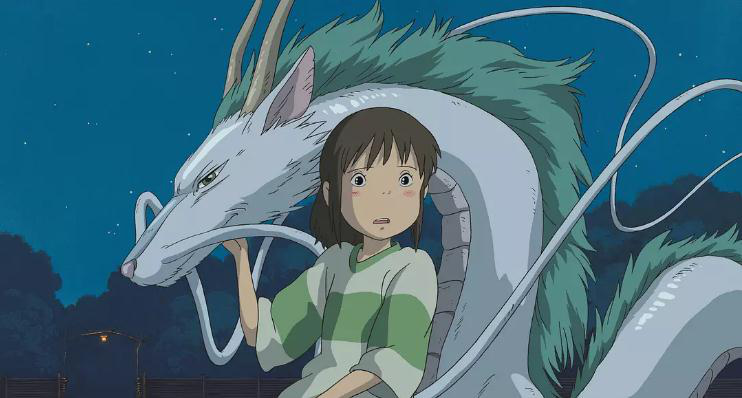
Special feature of 1905 film network A week ago, a premiere event was held in Shanghai. The director of Ghibli, Kenji Hoshino, brought a personal letter from director Miyazaki Hayao, which read eight Chinese characters: "Spirited Away, please take care of it".
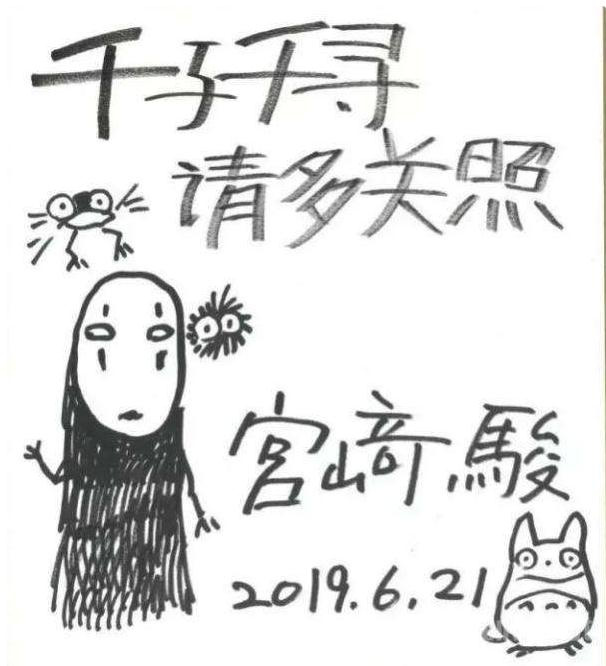
A week later, Spirited Away was released for four days, and the cumulative box office has exceeded 200 million. Miyazaki Hayao must have felt the love and care from China fans.
Last year, the 30th anniversary of its release was also celebrated by Studio Ghibli, and its digitally restored version was released for the first time in the Mainland, easily winning 173 million box office and successfully harvesting a wave of fans’ feelings.
This time, Spirited Away is even more powerful. The number of people who want to watch on the ticketing platform exceeds 200,000, and the score of Douban 1.11 million people reaches 9.3 points. It has won the box office championship for three consecutive days, pushing a number of Hollywood blockbusters to top the box office last week. "The movie ticket owed to Miyazaki Hayao can finally be returned."
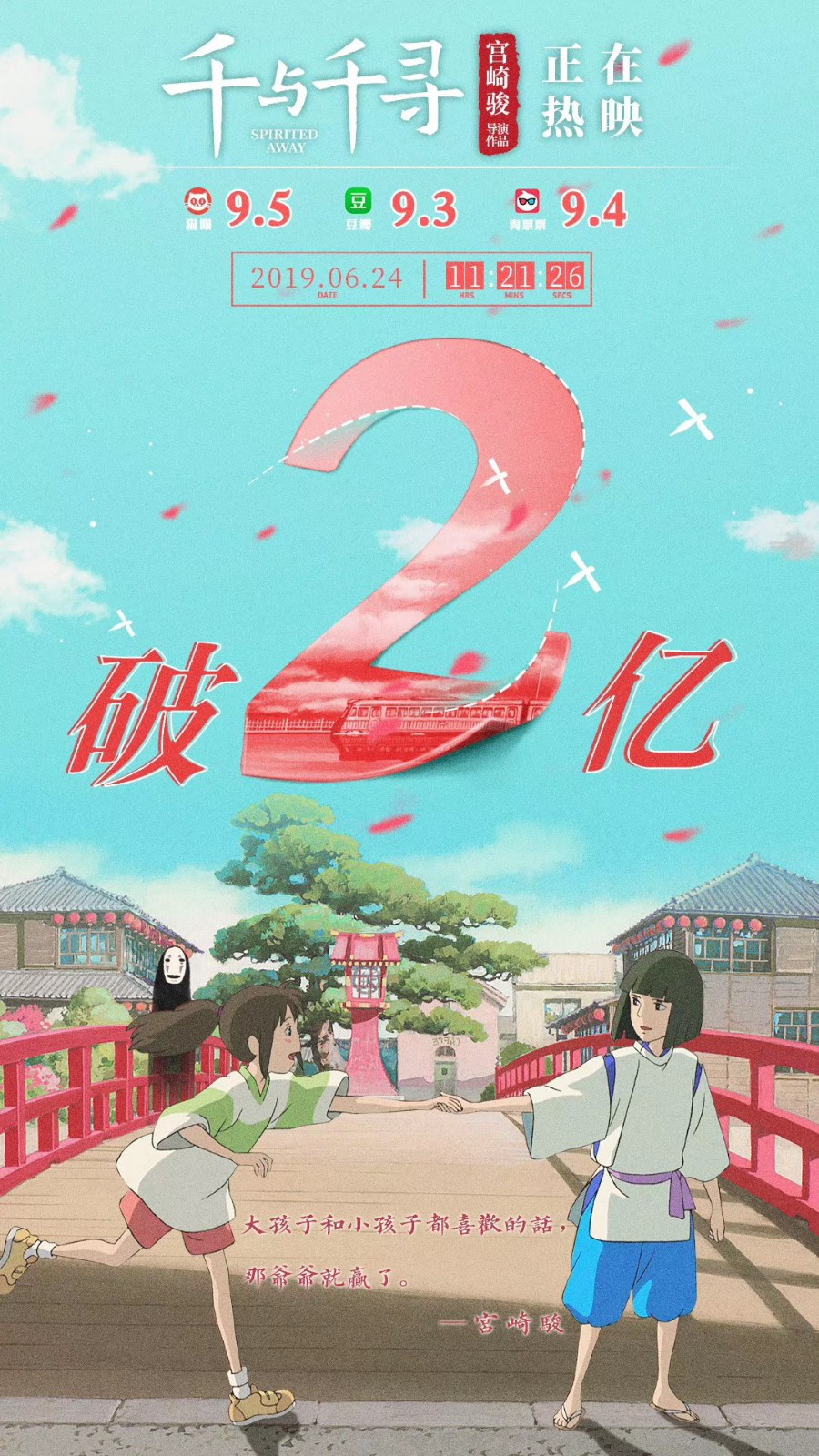
It’s been 18 years since the Japanese premiere. What kind of magic does Spirited Away have?
Adult fairy tales that are never out of date
In 2001, as the 13th animated feature film of Studio Ghibli, Spirited Away was released in Japanese mainland. The total number of people watching movies exceeded 23 million, and the box office reached 30.8 billion yen, surpassing the highest-grossing film in Japanese film history. This record has not been surpassed so far.At the same time, Spirited Away is the only film that won both the Oscar for Best Animated Feature Film and the Golden Bear Award at Berlin Film Festival, which can be said to represent the highest achievement of Asian animation in the world, and its position in film history goes without saying.
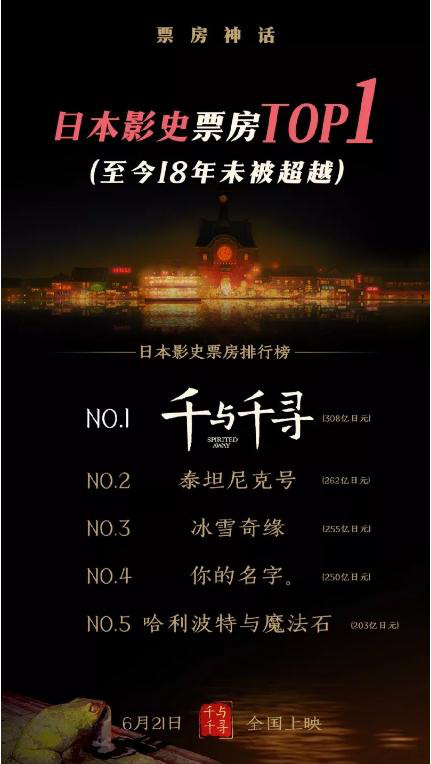
For every ordinary audience, Spirited Away’s classic lies in that there is no age and time limit to appreciate it, and every time you revisit it, you will gain a different understanding of life.
When we were young, we might be scared to cry by monsters, have terrible nightmares that our parents turned into pigs, and be moved to tears by the innocent feelings between Chihiro and Bailong.
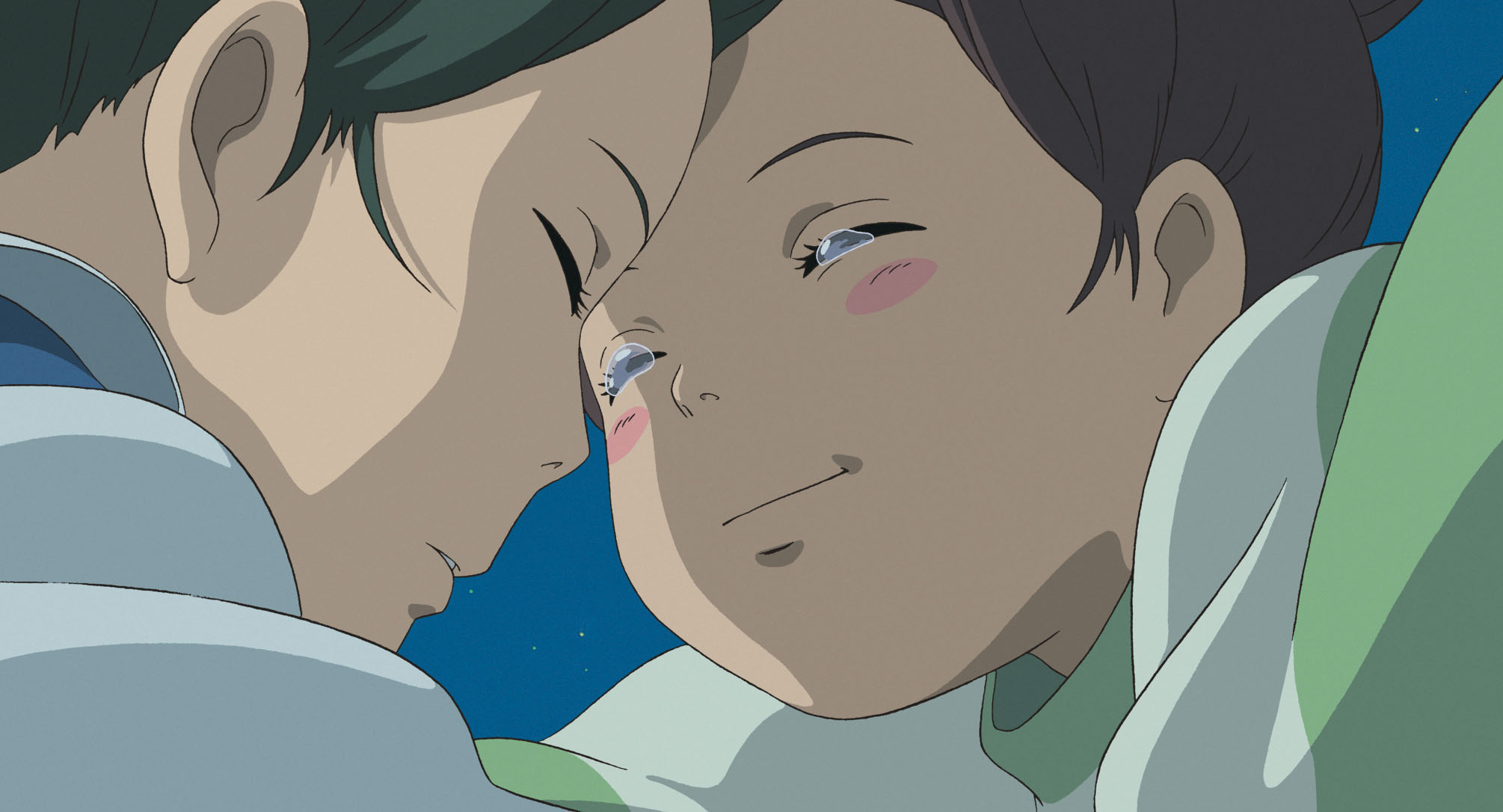
When we grow up, we gradually understand the metaphorical codes written by Miyazaki Hayao behind innocent fairy tales after social baptism.
Chihiro and his parents fell into a strange world, which is not only a microcosm of Japan’s bubble economy era, but also a world dominated by power and desire.
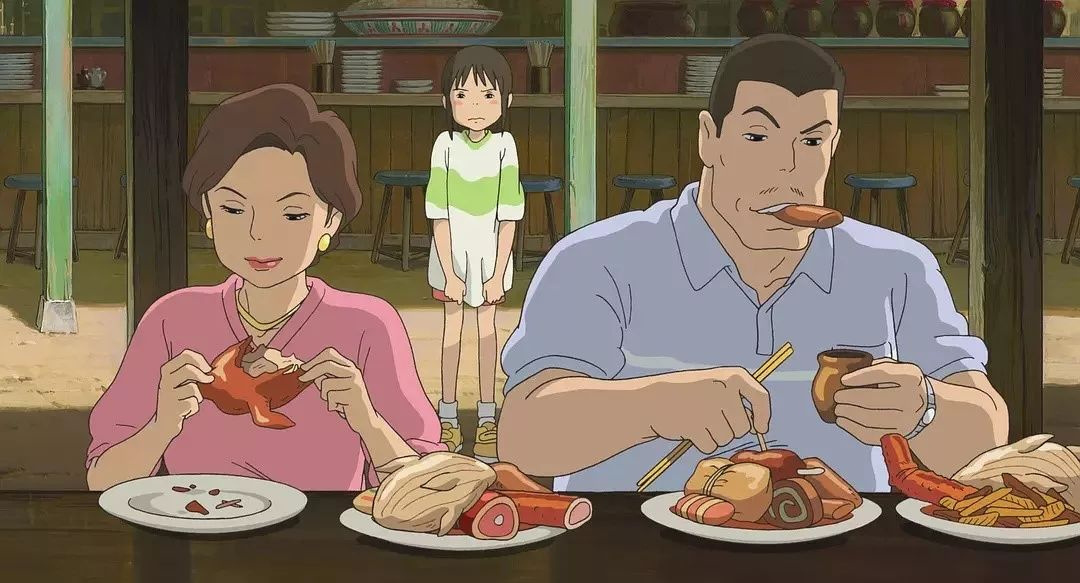
"People who don’t work hard will be turned into animals by Tang Popo", which is the rule of the world.
And the mechanical work day after day also makes us gradually lose ourselves and forget our original "name".
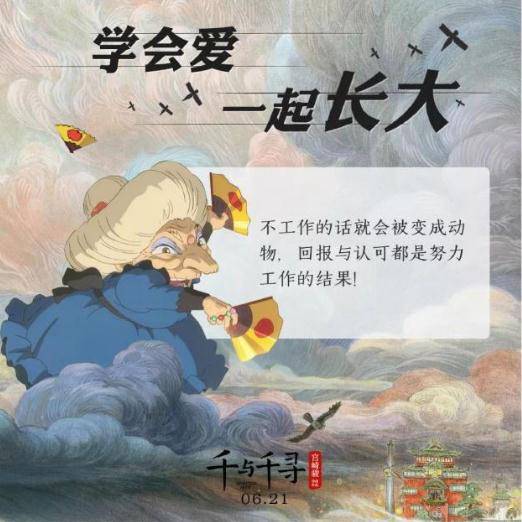
Faced with the temptation of material and money, we may have become bloated and greedy like Chihiro’s parents, like Kaonashi. We want to exchange money for friendship and care, but we find that we can’t fill our inner loneliness and emptiness.
When we were young, we always thought we were Chihiro, but when we grew up, we found our own shadow in Kaonashi.
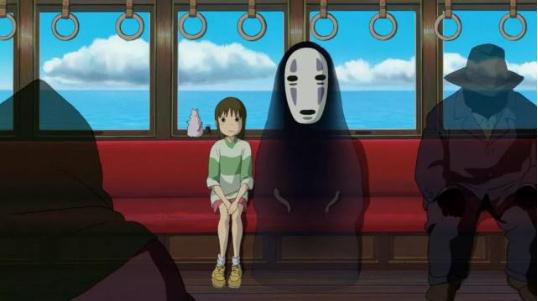
The existence of Chihiro seems to remind us at all times how not to be erased by society, how to remain pure and enthusiastic in the face of money and desire, and how to prevent ourselves from becoming the most hated "adults".
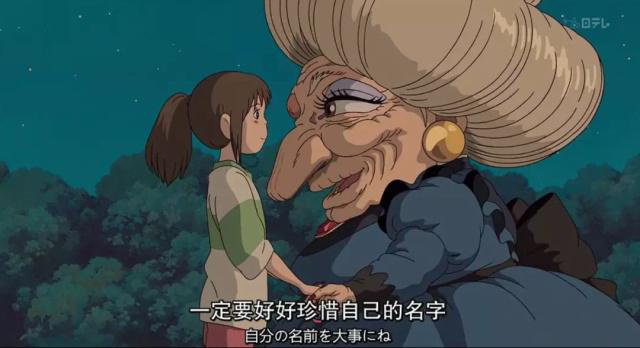
Looking through Spirited Away’s short comments on various platforms, it is not difficult to find that people of different ages and experiences can gain inspiration and spiritual strength from them, which is the enduring charm of Spirited Away.
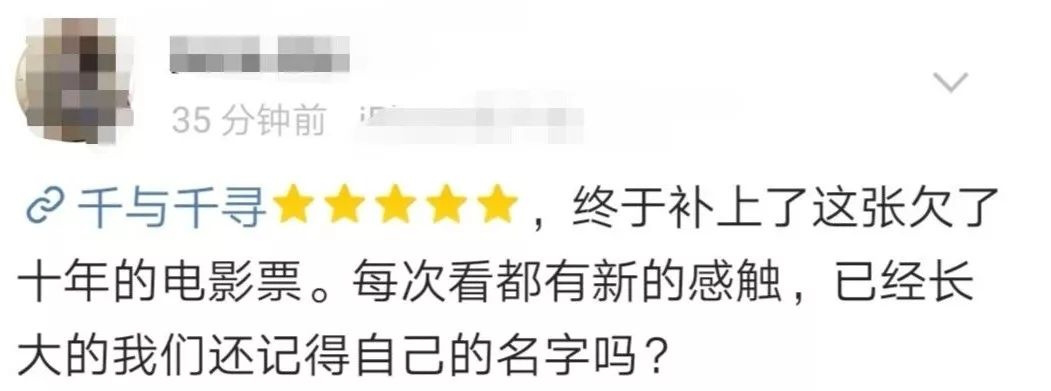
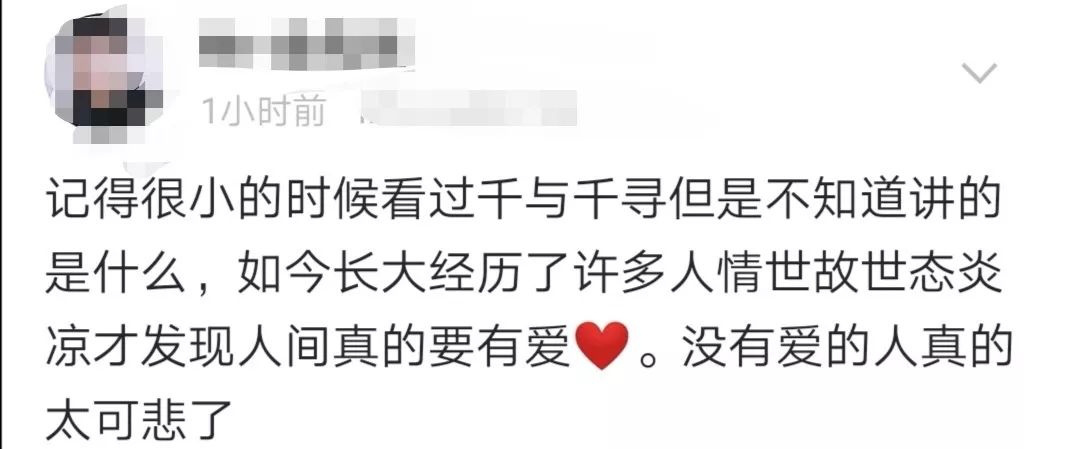
Not to mention, the metaphors of Japanese economy, society and the relationship between man and nature are ubiquitous in the film details. After 18 years, the interpretation of these metaphors has not stopped.
Therefore, behind Spirited Away’s big sale is not only the value of nostalgia, but also because it is an all-age animation in the true sense, which deserves two brushes, three brushes and N brushes.
What is the effectiveness of publicity in the Mainland?
From the beginning of May this year, Spirited Away officially announced the introduction of the mainland, and a series of publicity actions are also worth pondering.
First, two China posters designed by the Yellow Sea made it to the hot search, which attracted a wave of goodwill. The topic # Spirited Away Poster designed by the Yellow Sea in Weibo was also read more than 90 million times.
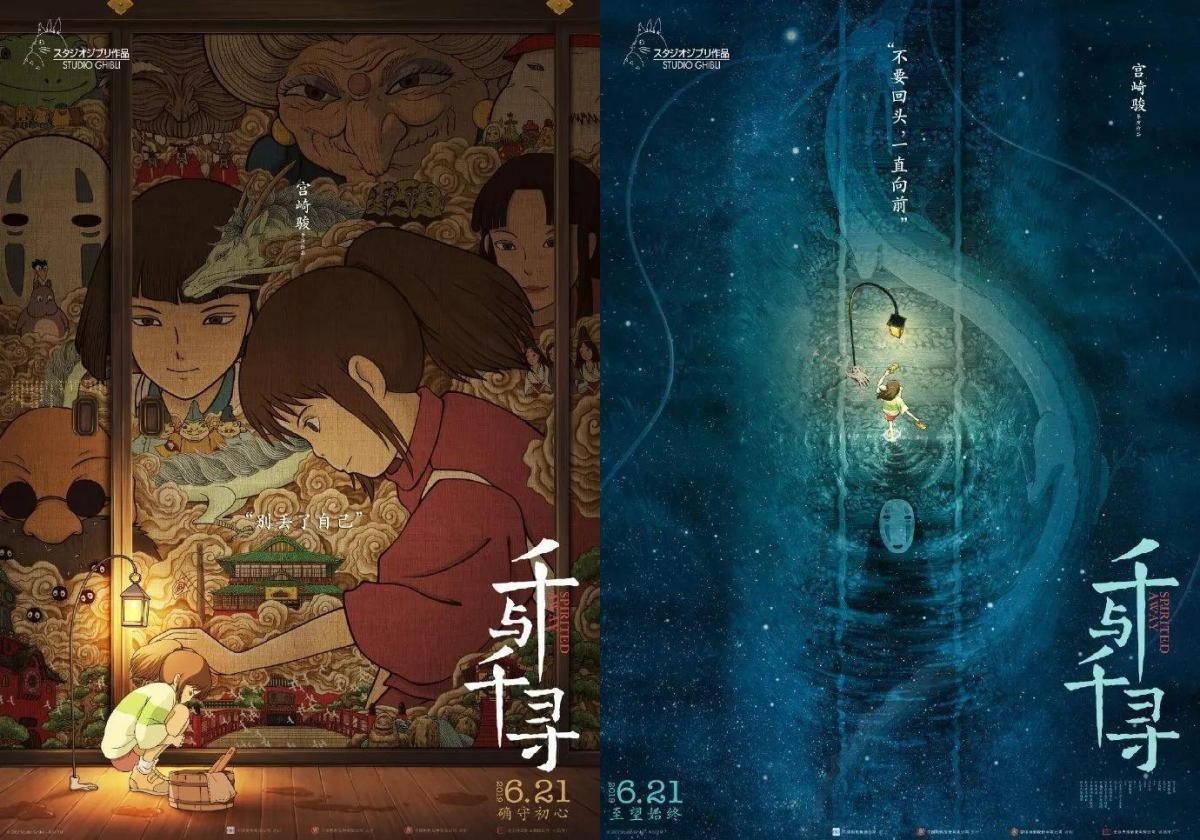
In recent years, Huang Hai, a designer, has almost become the spokesperson of online celebrity’s film posters, and he is good at combining Chinese style elements with film characteristics. In addition to waiting for masterpieces, My Neighbor Totoro’s poster, which was successfully published last year and praised by Japanese fans, was also written by Huang Hai.
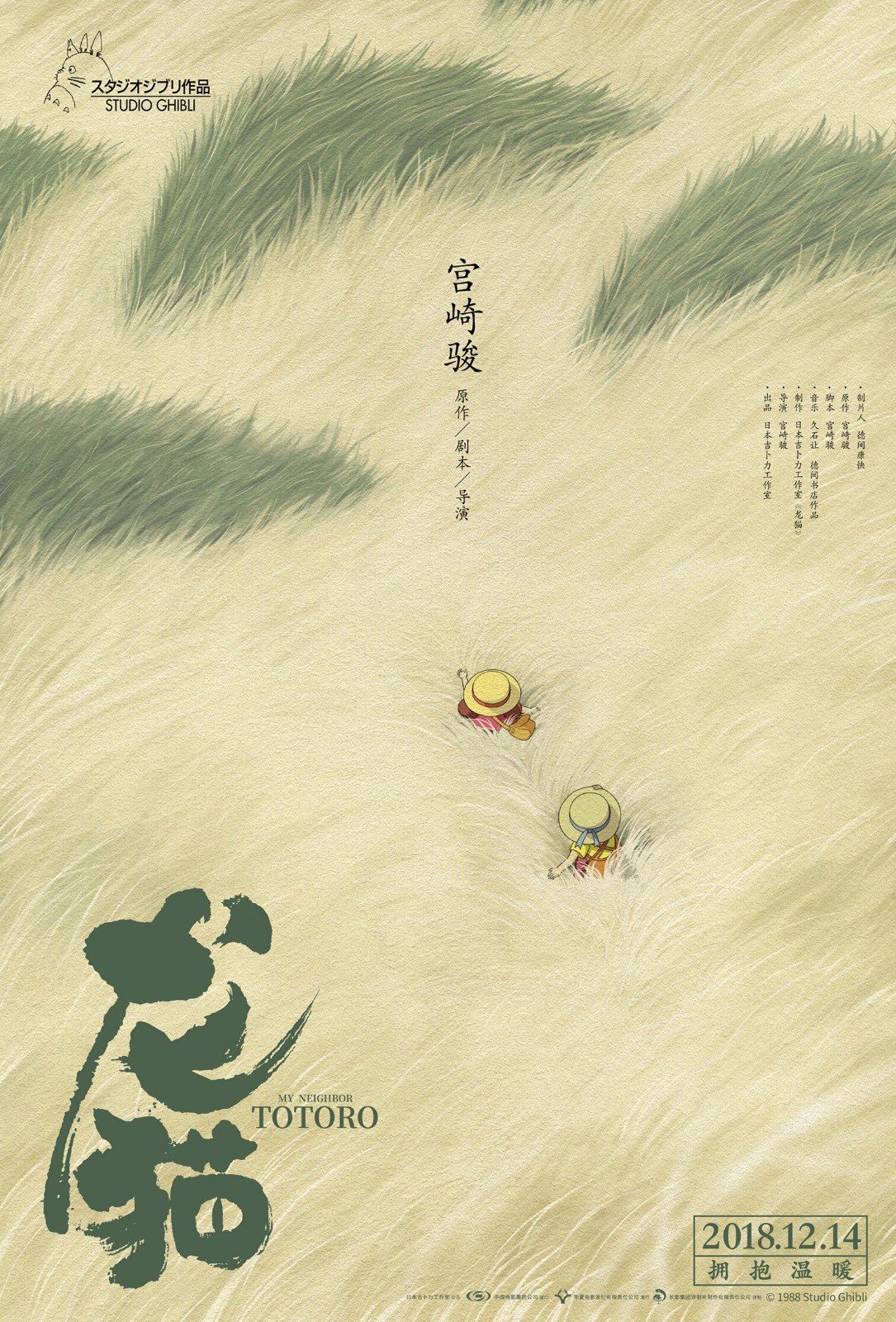
In addition to the explosive posters, Spirited Away’s Mandarin version of the dubbing lineup is also an all-star level. The dubbing line-up led by Zhou Dongyu, Jing Bo Ran, Peng Yuchang, Tian Zhuangzhuang and Wang Lin triggered a hot discussion on the whole network once it was exposed.
It is a common propaganda routine to introduce cartoons with Chinese star dubbing lineup or propaganda ambassador, which often leads to controversial comments. This time, Spirited Away is no exception.
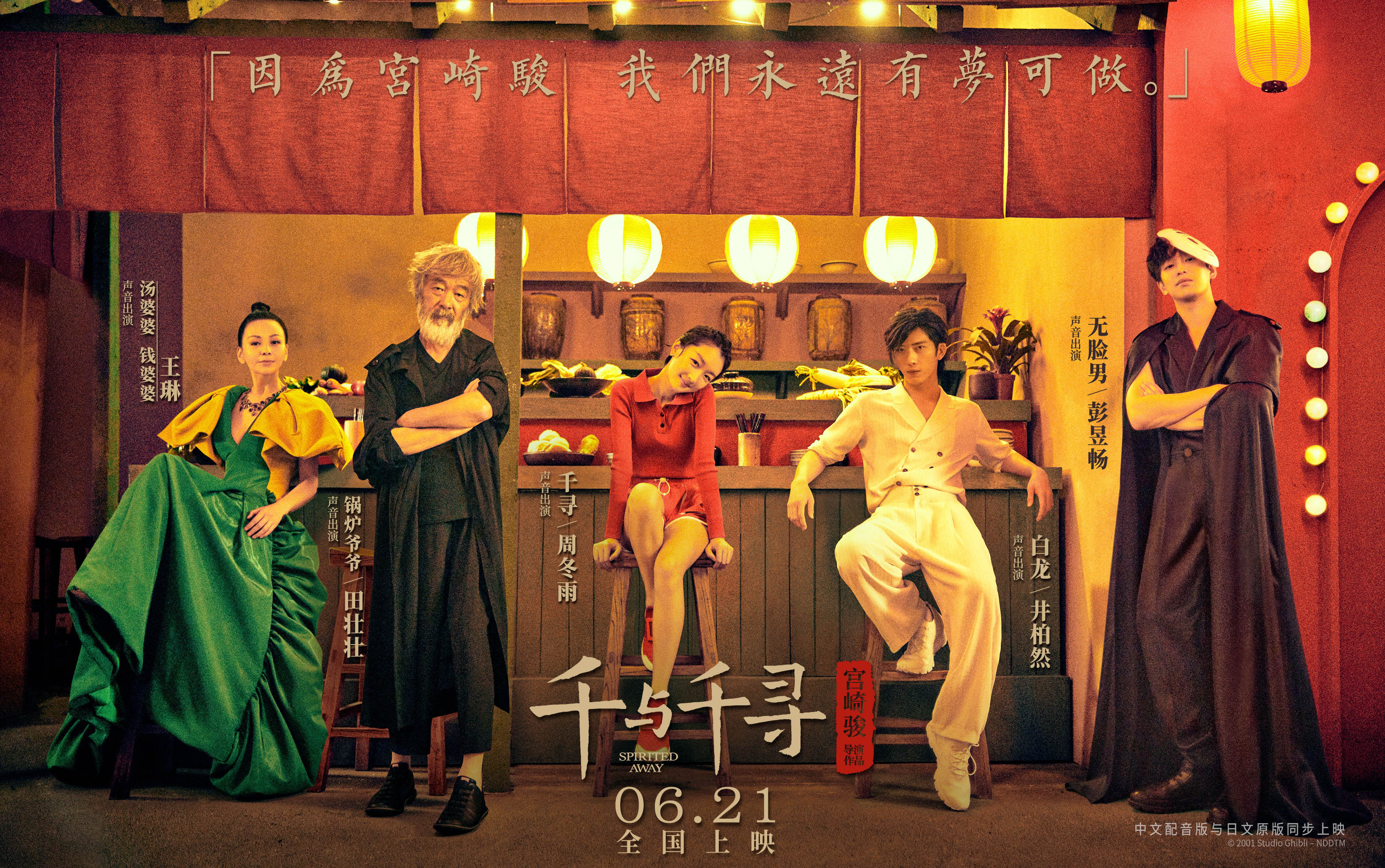
Chihiro, dubbed by Zhou Dongyu, is not consistent with the characters in the play, and some of them are "out of the play". This is not the first time that the professionalism of star dubbing has been questioned.
Due to the lack of preparation time and dubbing experience, the level of star dubbing is often criticized by the audience, and the significance of promoting the platform for the film mostly exceeds dubbing itself.
In addition, the cosplay posters shot by several voice actors for the film have also been vomited, and this wave of publicity focusing on Star Card has certainly enhanced its influence, but the effect is somewhat mixed.
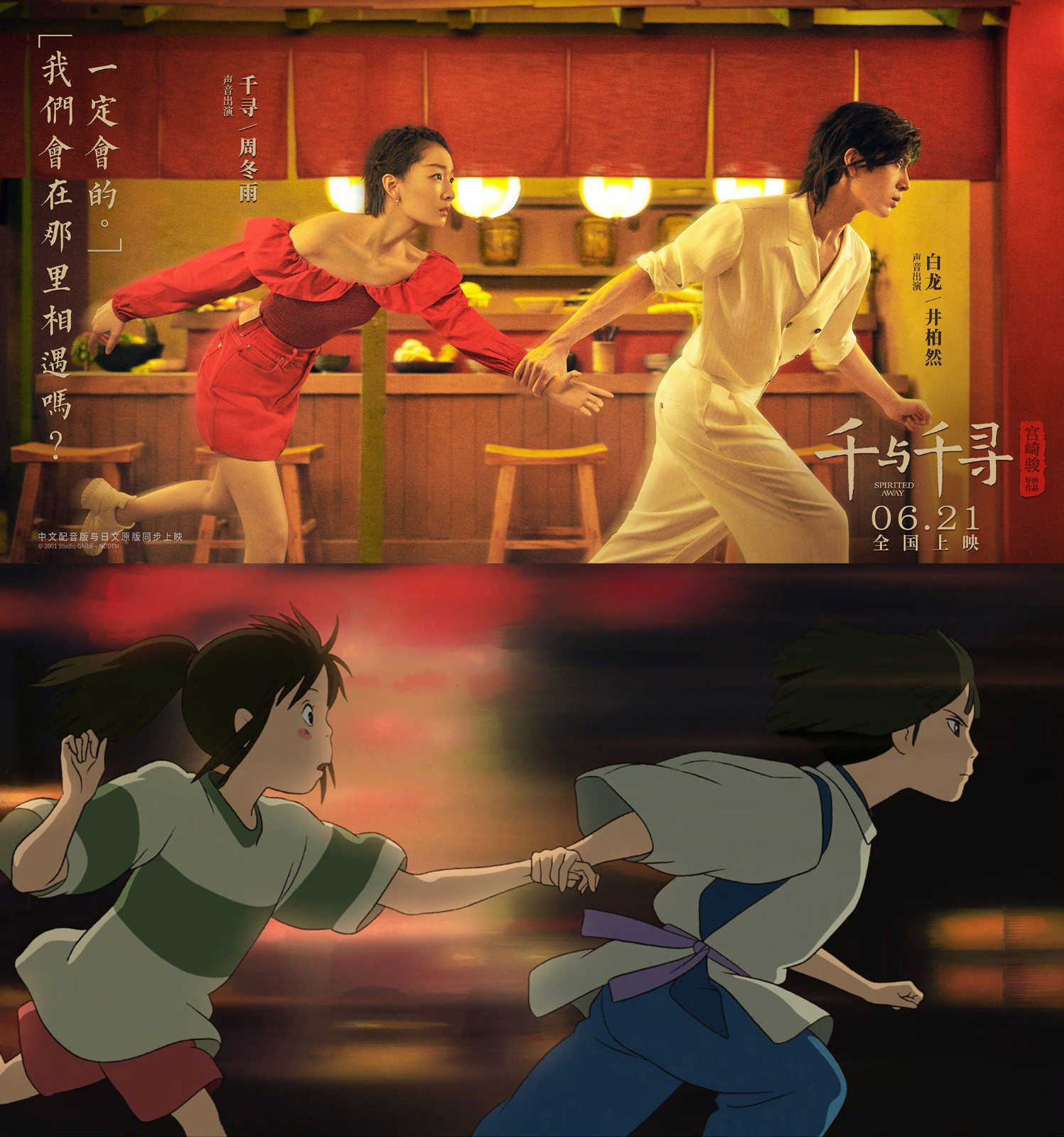
Another major marketing event in Spirited Away is Charlie’s cover of the theme song Dear Traveler. This well-known classic melody cooperated with Charlie’s "immortal voice" and was successfully "out of the circle", which quickly boarded the hot search, and the topic discussion reached 190 million times.

Good wine is afraid of the deep alley. Although Spirited Away’s propaganda is not a hit, it is mostly based on the characteristics of the film, which is in line with the tonality and temperament of the film and the target audience, and thus has achieved good publicity results.
"Replay" is a good business?
The movie "re-screening" is nothing new in the mainland market. Since 2013, the number of re-screened movies has exceeded 60, some of which are domestic and domestic animations of "one-day trips" and the other are domestic and imported classic films with IP and emotional attributes.
Strictly speaking, My Neighbor Totoro, Spirited Away and other films were released for the first time in mainland China, and they did not belong to the category of "re-screening". However, in a broad sense, they chose to release the films several years after the premiere, on the basis that the films have accumulated a large number of mainland fans, and they undoubtedly have the property of "re-screening".
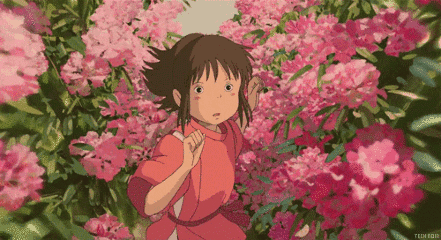
In 2009, the re-screening directed by Wong Kar-wai and starring Leslie Cheung won 25.92 million box office, which set off a wave of classic IP re-screening. Classic Hong Kong films have been "re-screened" in the Mainland, but the box office results are mixed.
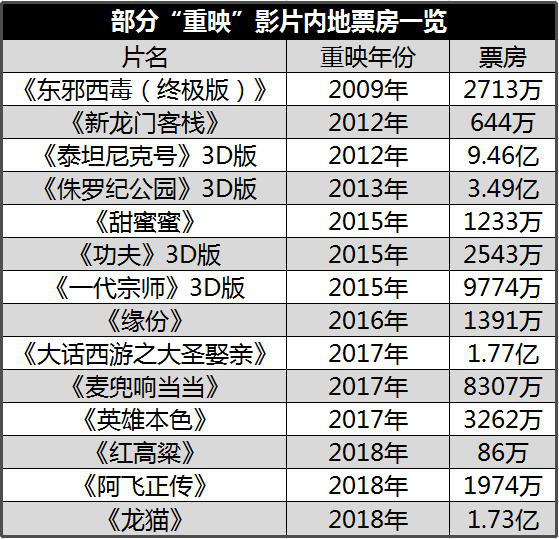
Among them, "The Great Sage of a Chinese Odyssey" took the "extended version" as the gimmick, and cooperated with the feelings to promote it. In 2017, it won 177 million box office, creating a box office record for Chinese film reruns.
However, the box office of films such as Ghost Story and Xinlongmen Inn did not exceed 10 million, and the box office re-released last year was even less than one million, which can be described as ice and fire.
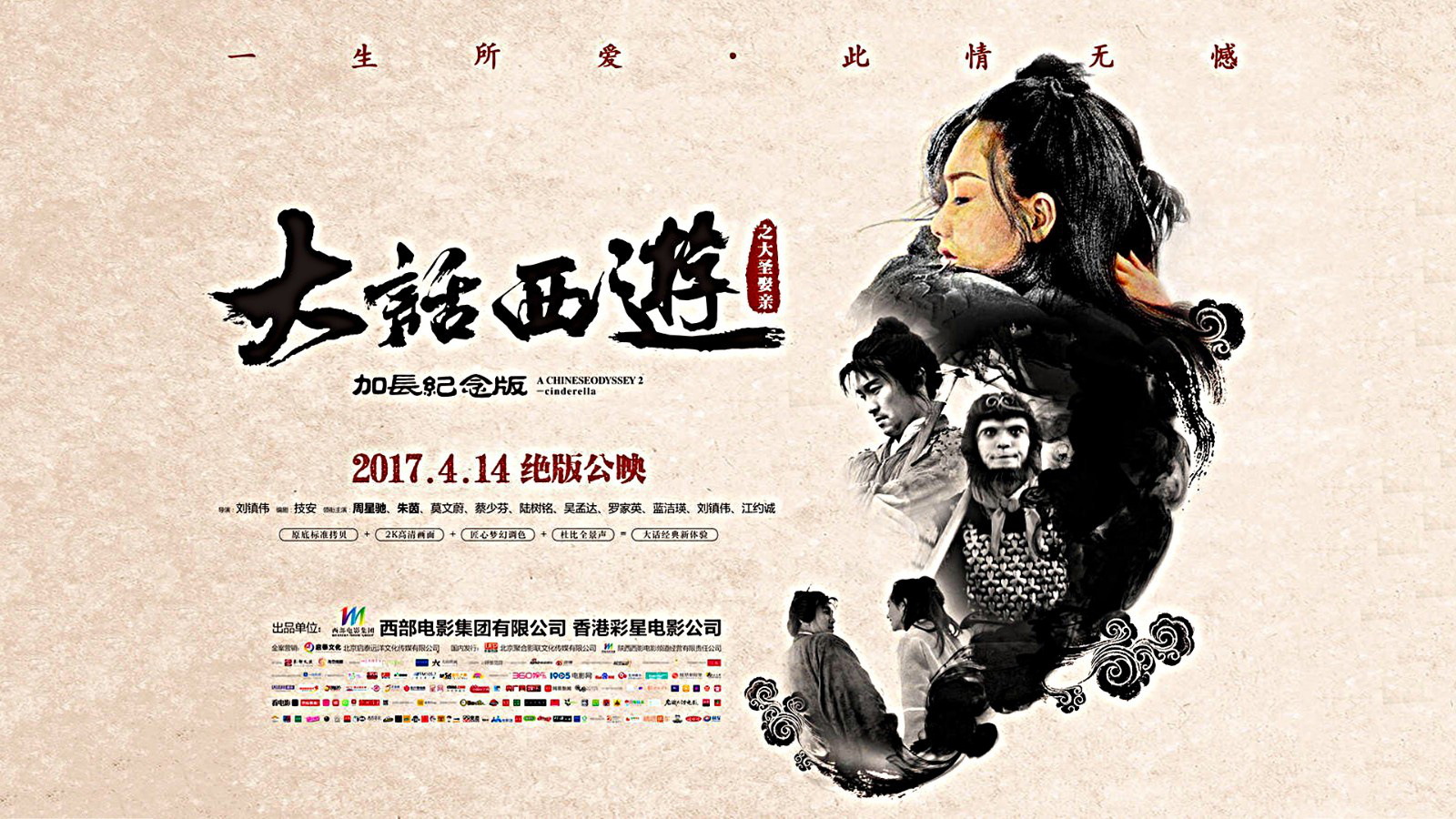
In order to enhance the freshness, sense of the times and publicity stunt, 2D to 3D is also one of the common ways to replay old films. In 2012, the 3D version of Titanic won 946 million mainland box office, making it an insurmountable peak. In 2013, the 3D version also earned 349 million box office in the Mainland, which was quite impressive.
In terms of Chinese films, the box office of the 3D version reached 97.74 million, but the 3D version released in the same year claimed that the conversion fee was as high as 20 million, but in the end it only earned 25.43 million box office. Unlike 2D repair costs of several million, 3D conversion costs are relatively high, and it is not a steady business.
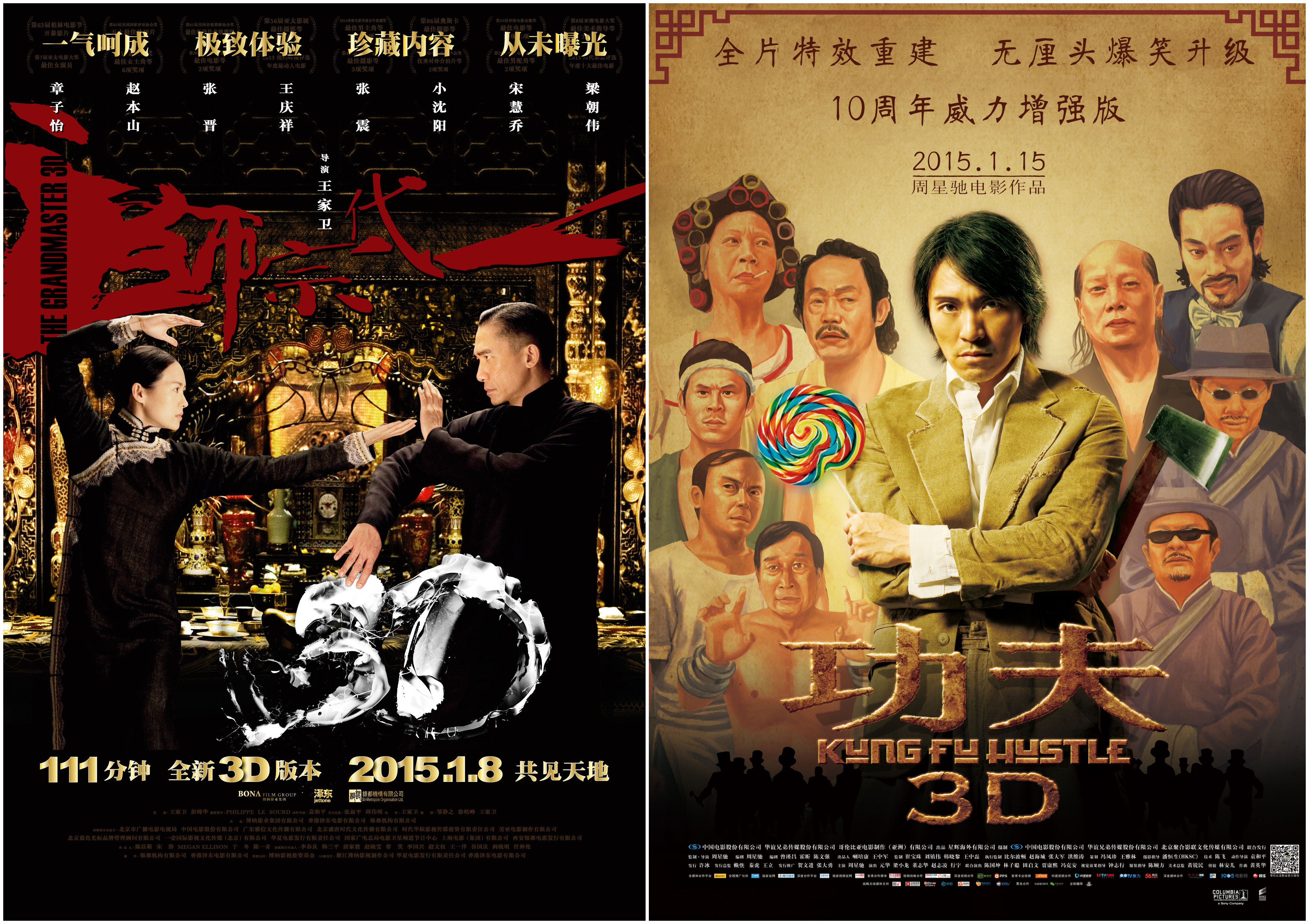
It is not difficult to see from the above examples that although the reprinting of old films has certain advantages in cost performance, the explosions that can really shake the market are only rare. More old films can only be restored and replayed as a useful supplement to the film market, and the artistic value of making classic films "see the light of day" with a brand-new look is often higher than its market value.
Whether it was My Neighbor Totoro’s A Chinese Odyssey or Spirited Away today, a "re-released explosion" is the result of top IP value, strong fan base and marketable publicity strategies.
Perhaps, because of Spirited Away’s success, a large number of "re-animated films" are on their way, but it is not easy to create the next Spirited Away when feelings are seriously harvested and overdrawn.